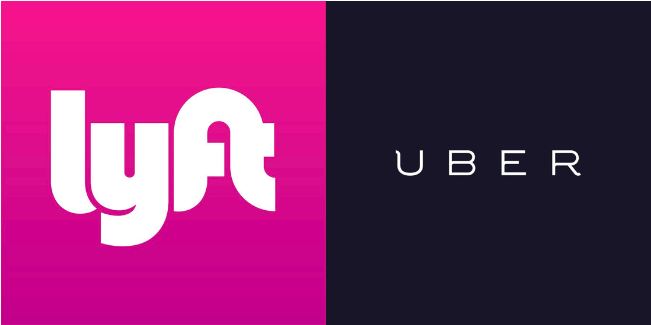Uber and Lyft. Inevitably, accidents. It’s a brave new legal world.
Where taxis of various types once ruled, Uber and Lyft now dominate. Uber alone accounts for about 85% of the US ride-hailing market. That’s 15 million rides every day. 10 billion rides since startup. Lyft is Uber’s closest rival, although way behind in traffic and revenue. Neither of these companies owns a single taxi. They’re marketplaces. People with cars who want to sell rides. People who want rides. Drivers and riders are matched by mobile phone apps. Some 3 million people have become Uber drivers. Another 48 million US adults will buy Uber rides by the end of 2018.
WHAT’S NEW AND DIFFERENT?
Uber and Lyft drivers are not commercial operators driving commercial vehicles. They “hire” themselves by registering through the phone app. The process includes a background check. Uber and Lyft both use an online service called Checkr. This software searches records databases across the USA. Uber and Lyft don’t reveal the exact criteria they apply. Both require at least one year of licensed US driving experience. Uber insists on no major traffic violations for 7 years. They’ll accept a maximum of 3 minor violations during the last 3 years. The companies screen out violent felons and sexual offenders. However, Uber accepts some non-violent felons.
HOW CAN THIS WORK?
This screening is less strict than that of local governments to license commercial drivers. Most take fingerprints and use a more accurate search. One District Attorney rates background checks without prints as “completely worthless”.
Enter the power of the mobile app and the market. For the most part, these forces push Uber and Lyft drivers in the direction of safer operations. The mobile apps make it easy for riders to rate drivers. Furthermore, these ratings are visible to other customers. Thus, they drive the demand for individual drivers’ services. The apps also help riders to easily report bad driving to the companies, in real time. This is a strong incentive. In effect, competition between drivers pushes safety up and poor drivers out.
UBER VS. LYFT?
The net effect on Uber and Lyft accident rates is still unclear. One much-cited study found overall traffic fatalities decline when these companies enter a market. However, the most recent review found the opposite. The problem is that the rideshare business model doesn’t lend itself to gathering statistics. As far as the comparative safety records of Uber vs. Lyft accidents go, the leading industry pundit believes them to be roughly equal. The same financial incentives are at work on both. Furthermore, at least 20% of rideshare drivers work with both Uber and Lyft.
BUT WHAT IF?
The numbers do make it plain that using Uber and Lyft for personal transport is becoming common. So are accidents and injuries involving these drivers. Anyone hurt in the Boca Raton area needs an Uber Accident Lawyer, or a Lyft Accident Attorney right away. It’s a specialized, evolving legal practice. It takes updated knowledge and experience to get justice for injured clients. Silver Injury Law Car Accident Attorneys are here to help.




